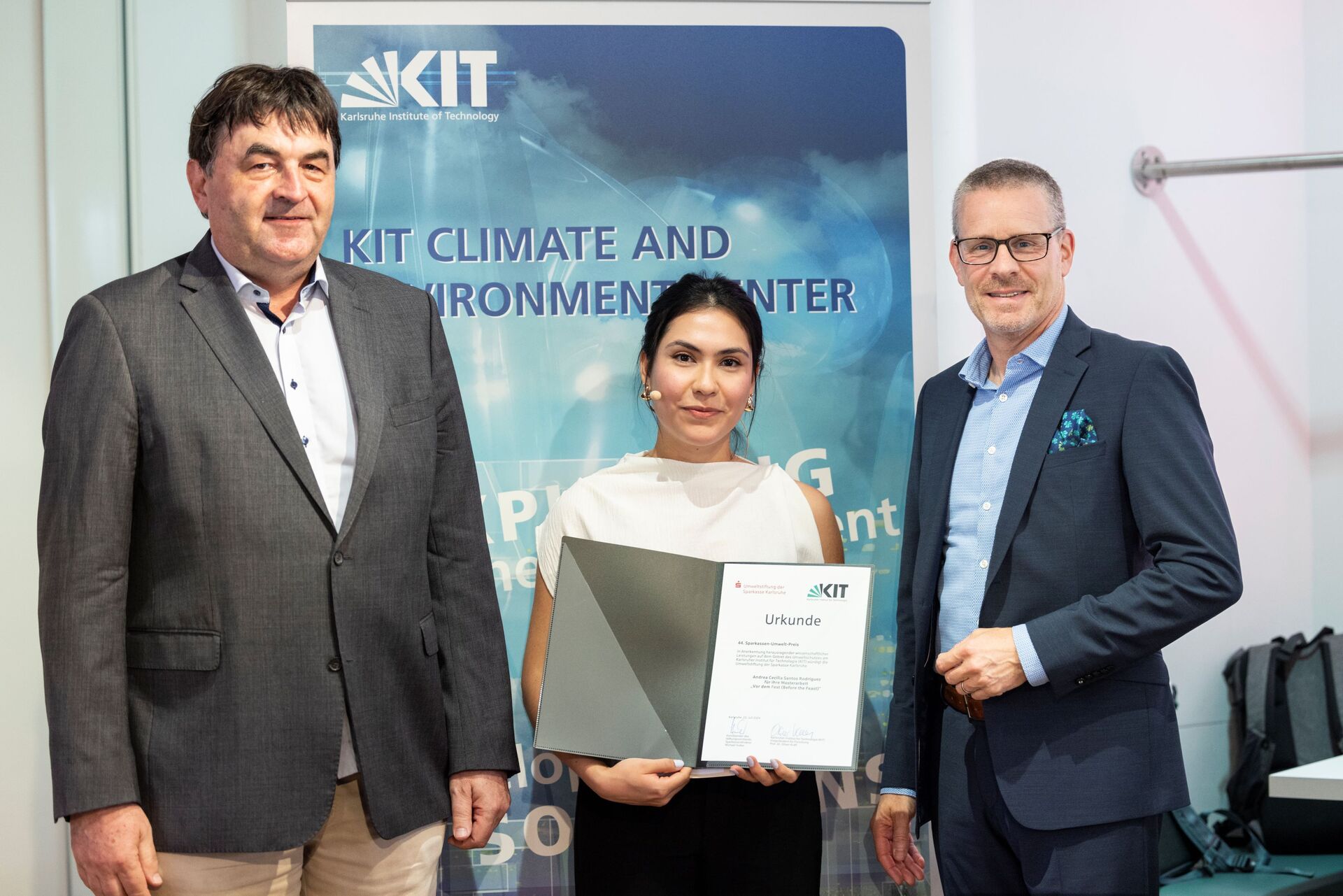Presentation of the Sparkassen Environmental Award 2023

The Sparkassen-Umwelt-Preis was awarded on July 22, 2024 at the annual conference of the KIT Center Climate and Environment. After the welcoming speeches by Prof. Thomas Hirth, Vice President of KIT, Bettina Lisbach, Mayor of Karlsruhe, and Michael Huber, Chairman of the Board of Sparkasse Karlsruhe, the short presentations of the award winners and the presentation of the Sparkassen-Umwelt-Preis 2023 (moderated by Prof. Olivier Eiff) took place.
Master's graduate Andrea Cecilia Santos Rodríguez received the award for her thesis "Vor dem Fest (Before the Feast)".
About the thesis:
A complex web of cultural, social and economic practices linked to the production and consumption of food is woven around our eating habits. Current food practices are primarily focused on large, profit-making operations and disregard the human aspects. Nevertheless, there are places where typologies such as markets and kitchens characterize everyday life. For example, in El Salvador, Central America, around 80% of the food consumed in the country is imported from abroad, making the country very vulnerable to price fluctuations on international markets. In her master's thesis, Andrea Santos investigates how architecture can help to reduce food dependency.
The aim of the work is to integrate food production into the city. Architecture becomes a platform on which everyone can use the space flexibly. The modularity of the design allows for gradual expansion with individual design. Density ensures that urban spaces are used optimally to combine production, living and learning. The design takes into account local construction methods and climatic conditions in order to minimize the ecological footprint and costs.
Based on her research, Andrea Santos proposes an aquaponics cooperative for the city of Santa Tecla. Aquaponics combines the rearing of aquatic animals with the cultivation of crops in water. The approach aims to take up traditional eating habits and create new micro-economies. In the first phase, members of the cooperative move onto the site and practice aquaponics for self-sufficiency. A joint unit will then take production to a commercial level. Finally, an educational program will be introduced to offer larger aquaponics modules, seminars and workshops.
The project is scalable and takes into account social, economic, technical and ecological aspects in order to be implementable worldwide.
The work was created in the summer semester 2022 and was supervised by the Professorships of Sustainable Construction and Architectural Communication.
More information: https://www.klima-umwelt.kit.edu/2229.php
